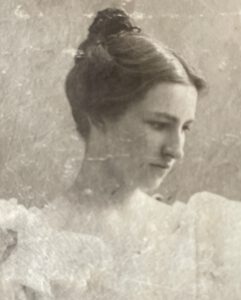“Just want to tell you how much I loved Mrs. Lowe-Porter! I’ve been engrossed in Mann since I was in college (about to have my 65th reunion, so you can do the math), and like most readers I didn’t pay much attention to the translator’s name — although “H.T. Lowe-Porter” was indelibly inscribed on my brain. But a woman? I only found that out years later.
Mann (and thus Mrs. L-P!) have been central to my intellectual growth (such as it is) over these decades, and I’ve read most of the work and also re-read it in the new translations. But your book made me appreciate how significant a role Mrs L-P played — because she made the work accessible to so many of us. Even if your story is only half true, I appreciate her even more now.”
“Mrs. Lowe Porter was such a good book! It was a pleasure to keep turning the pages. Helen’s person is so fully realized and with such deep sympathy…. masterful (or perhaps mistressful). I love that the relationship between Helen and Elias is revealed with such profound nuance, both in its description of masculine obliviousness and presumption as well as the strong lifelong connection between the two of them. You manage to bring me along as you describe Helen’s increasingly crotchety nature as she aged and the sad weakening of her relationships in its wake. The book will now go immediately to the reread pile.”
“I’ve just finished reading ‘Mrs. Lowe-Porter’, and I enjoyed the novel very much. As a translator myself (also from German), I imagine your book will hold a special appeal for those of us who do literary translations — even if we are somewhat of a niche market! I was pleased to see the attention that the NY Times gave it.
Fictionalized biographies set an author a special kind of challenge. Without falsifying the life being described, the writer must construct a workable narrative structure, and the timeline of the subject’s life doesn’t always cooperate. It was good to see that you could keep the story going right up to the final page, and I especially liked some of the details, which may be part of family lore or your own invention, such as Elias’s habit of leaving fresh fruit for his lovers.”
“I am having so many thoughts and feelings as I am reading your book that it’s a bit hard to restrain myself (a little like Hans Castorp when he gets pumped up about something).
Helen’s struggles with the rejections . . . I can so relate . . . even though I can see her evolution and growing trust in her instincts (just finished p. 157). That earlier scene where she threw the work into the fire . . . almost unimaginable, to really have it completely gone, in this era where we have our work stored on hard drives and backed up on clouds, etc. The level of despair, that feeling of worthlessness . . . wow. I have almost completely given up on submitting my work anymore, but your novel is having some kind of effect on me . . . though I’m still not sure what that effect will be.”
“I love the book so far. ..and feeling wonderfully content about continuing. You are a profound and beautiful writer.”
“I’ve just finished your book and really enjoyed it. What a story. You have portrayed Helen Lowe-Porter so beautifully and profoundly. I could not put it down.”
“Wonderful story & really beautifully written!”
“What a beautiful book you’ve written. The language is exquisite, as I’d expected, perfect words and phrases that lift off the page without calling attention to themselves or making the reader think of the writer behind them. Some of the visual details are so evocative it seemed like you must have dreamed them into words.
It is all that and it’s also compelling in sweep, the politics of the time, other characters and relationships, the details and challenges of translating literature, the arc through the wars and various settings. Mostly I very much wanted to know what would happen to Helen, how her life would unfold. And, though it was sad at the end I still felt as if I’d gone on an exciting and complex journey with a woman I was glad to know.”
“It’s so fine; so beautiful how you relay the sexism she was up against, but also the joys and pleasures of marriage and motherhood. You paint a complex picture, and I very much like the structure of the novel, and the fact that we hear other voices, rounding out the picture of Helen, and see many different scenes from her life. Also your portrait of her in old age, even though she is clearly impossible to others (the daughters for instance) is so deeply sympathetic.”
“I have finally finished your book, which I have been savoring for the past month. I have just loved it. Helen at the center of it all is a deep, wonderful, tortured character, and the depiction of her through so many ages of her life felt very real. I loved the short chapters, each one a little gem. I never got lost. Elias was also a really good depiction of a difficult, entitled, and yet loving man. I enjoyed thinking about the process of translation, and remembering bits of my long ago reading of Thomas Mann. I also think your writing – your descriptions, your use of words – is masterful. Again and again I found myself thinking, ‘yes, that’s just right,’ or ‘how beautifully said.'”
“What a magnificent work, it spoke to me, deeply! I am in awe of your elegant writing style, of how you so beautifully entered the mind and soul of Helen L-P. The final chapters are beyond masterful in the rendering of a gradual onset of dementia.”
